Welcome to Tsukuba! It’s a city located in the heart of Ibaraki Prefecture, Japan. Often referred to as the “Science City,” Tsukuba is home to over 300 research institutions and universities, making it a hub for technological advancement and academic excellence. But don’t let its modern facade fool you; Tsukuba is also culturally rich. This travel guide will unveil the top things to do in Tsukuba, ensuring you experience a blend of science, nature, and culture during your visit.
source: My Japan Days on YouTube
Located just an hour’s train ride from Tokyo, Tsukuba offers a peaceful retreat. Whilst still providing a wealth of activities and attractions. From hiking the iconic Mount Tsukuba to exploring cutting-edge research centers, the city caters to a diverse range of interests. Whether you’re a science enthusiast eager to delve into Japan’s technological innovations or a nature lover looking to immerse yourself in breathtaking landscapes, Tsukuba has plenty on tap.

Why Visit Tsukuba?
- Innovative Attractions: Explore Japan’s leading science and technology hubs, including JAXA and the Tsukuba Science City.
- Natural Beauty: Hike Mount Tsukuba for panoramic views, or relax in lush parks and botanical gardens.
- Cultural Richness: Visit ancient shrines, participate in traditional tea ceremonies, and experience local festivals.
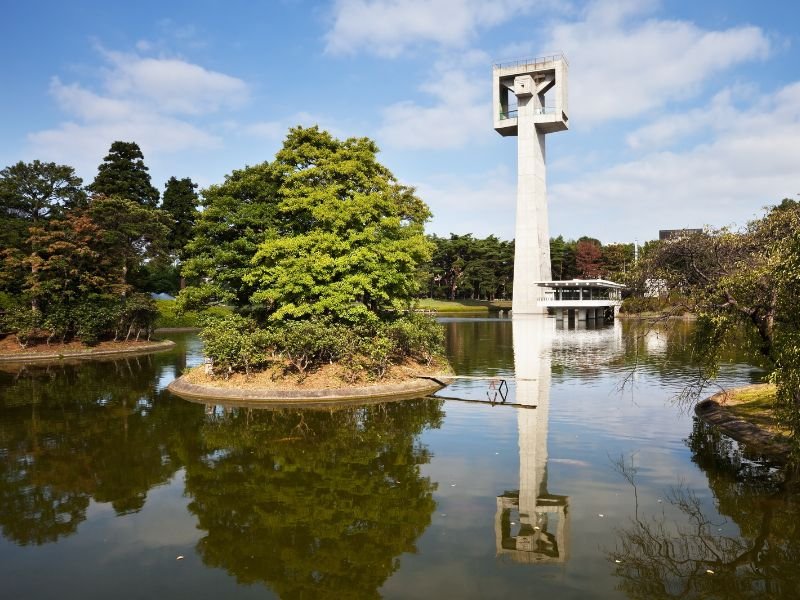
Tip: The best time to visit Tsukuba is during spring (March to May) for cherry blossoms and pleasant weather, or autumn (September to November) for vibrant foliage and cooler temperatures.
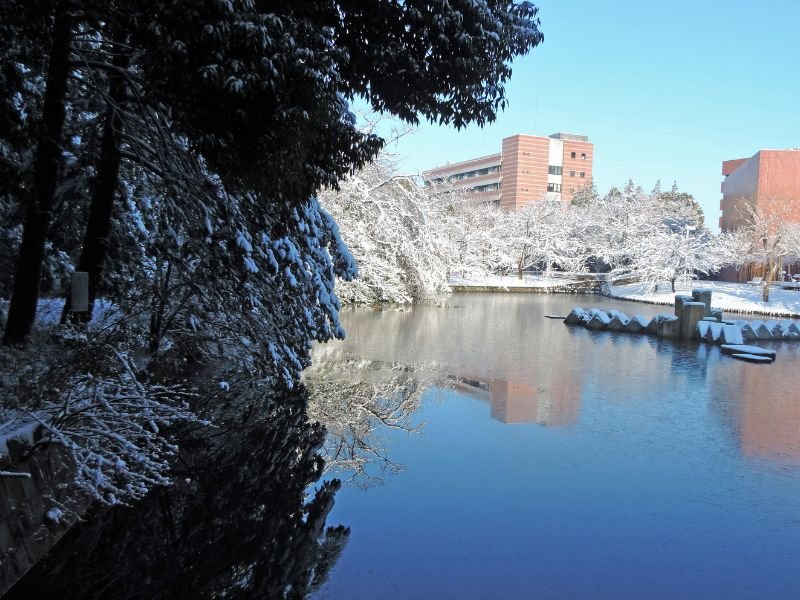
Top 20 Things To Do in Tsukuba, Japan For Visitors
Here are some of the best things to do in Tsukuba:
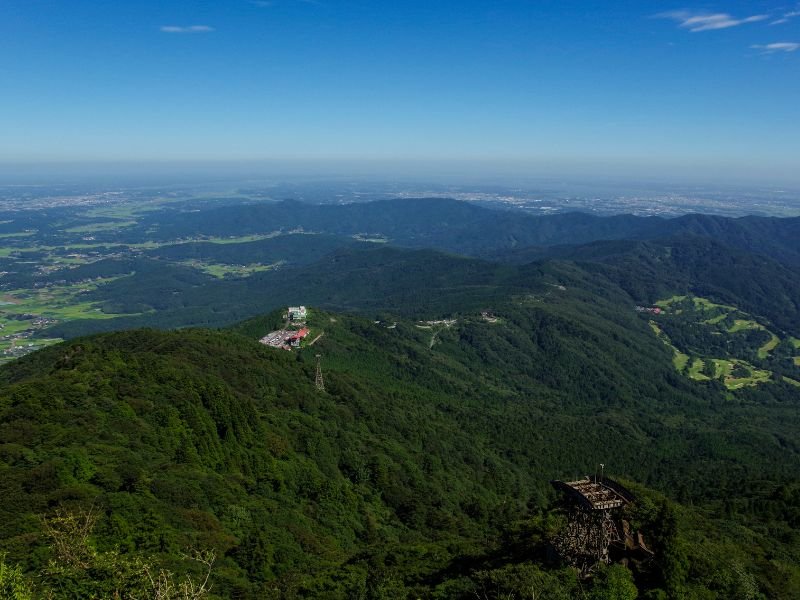
1. Hike Mount Tsukuba
Standing proudly at 877 meters, Mount Tsukuba is one of Japan’s most celebrated mountains. It’s often mentioned alongside Mount Fuji. Unlike Fuji’s singular peak, Mount Tsukuba boasts twin peaks: Nyotai-san (877m) and Nantai-san (871m), representing a female and male deity, respectively. The mountain is steeped in mythology and is considered a sacred site. Hiking trails vary in difficulty, catering to both seasoned hikers and casual walkers. The summit rewards climbers with breathtaking panoramic views of the Kanto Plain, and on clear days, you can even spot Mount Fuji in the distance.
- Scenic Trails: Choose from multiple paths like the Miyukigahara Course for a moderate hike or the Shirakumobashi Course for a more challenging ascent.
- Cable Car and Ropeway: For a leisurely journey, take the Miyawaki Cable Car or the Mount Tsukuba Ropeway to the summit.
- Panoramic Views: Enjoy 360-degree vistas encompassing Tokyo’s skyline, Lake Kasumigaura, and the surrounding countryside.
Tip: Wear sturdy hiking shoes and pack layers, as temperatures can vary between the base and summit. Starting your hike early in the morning helps avoid crowds and offers cooler temperatures.
2. Visit Tsukuba Space Center (JAXA)
Embark on a cosmic adventure at the Tsukuba Space Center, the heart of Japan’s space exploration efforts, operated by the Japan Aerospace Exploration Agency (JAXA). The center plays a pivotal role in international space missions, including contributions to the International Space Station. Visitors can explore the Space Dome, an exhibition hall featuring life-sized models of rockets, satellites, and the Japanese Experiment Module “Kibo”. Interactive displays and informative exhibits make it an engaging experience for all ages.
- Space Dome Exhibition Hall: Discover Japan’s space technology through models, videos, and artifacts.
- Guided Tours: Free tours (in Japanese) offer deeper insights into space missions and astronaut training.
- Astronaut Suits and Equipment: Get up close with real astronaut gear and learn about life in space.
Tip: Visit JAXA’s official website to check tour schedules and availability. English-language pamphlets are available, but consider bringing a translation app for a more comprehensive understanding.
3. Explore Tsukuba Botanical Garden
Immerse yourself in the lush greenery of the Tsukuba Botanical Garden, managed by the National Museum of Nature and Science. Spanning over 14 hectares, the garden is home to approximately 7,000 plant species from around the globe. Specialized sections include tropical greenhouses, alpine plant areas, and a vast collection of Japanese native flora. The garden serves as both a recreational space and a research facility, promoting biodiversity and conservation.
- Themed Sections: Explore diverse ecosystems such as the Tropical Rainforest House, Desert House, and Aquatic Plant Area.
- Seasonal Blooms: Witness cherry blossoms in spring, hydrangeas in early summer, and colorful foliage in autumn.
- Educational Programs: Participate in guided tours, workshops, and hands-on activities focusing on botany and environmental science.
Tip: Allocate at least two to three hours to fully appreciate the garden. Bring a picnic to enjoy in designated areas, but remember to carry your trash out with you to keep the garden pristine.
4. Visit Tsukuba Expo Center
Relive the excitement of the 1985 International Exposition at the Tsukuba Expo Center, a science museum designed to inspire curiosity and innovation. The center features interactive exhibits on space, robotics, energy, and more. One of the main attractions is the H-II Rocket Model, a 50-meter-tall replica that stands as a symbol of Japan’s technological advancements. The Planetarium boasts one of the world’s largest domes, offering immersive star shows and educational programs.
- Interactive Exhibits: Engage with hands-on displays covering topics like virtual reality, renewable energy, and nanotechnology.
- Planetarium Shows: Experience high-definition projections of the night sky, celestial events, and educational films.
- Science Workshops: Participate in DIY experiments and craft sessions suitable for children and adults.
Tip: Planetarium shows often sell out, especially on weekends and holidays. Arrive early or reserve tickets in advance. English-language shows may be limited, so check the schedule beforehand.
5. Stroll Through Doho Park
Escape the urban hustle at Doho Park, a 30-hectare oasis offering a blend of natural beauty and recreational facilities. The park features a large central pond surrounded by walking and jogging paths, making it an ideal spot for relaxation and exercise. Seasonal flowers like cherry blossoms, azaleas, and lotus blooms add vibrant colors throughout the year. Families can enjoy playgrounds, while sports enthusiasts have access to tennis courts and a gymnasium.
- Walking Trails: Enjoy leisurely strolls around the pond, through wooded areas, and along flower-lined paths.
- Sports Facilities: Access tennis courts, a swimming pool, and a gymnasium for various activities.
- Seasonal Beauty: Witness cherry blossoms in spring, vibrant greenery in summer, colorful leaves in autumn, and serene landscapes in winter.
Tip: The park is bicycle-friendly. Consider renting a bike to explore more of the park and nearby attractions. Also, vending machines and restrooms are conveniently located throughout the park.
6. Experience Tsukuba Wanwan Land
Animal lovers rejoice at Tsukuba Wanwan Land, an interactive petting zoo primarily focused on our canine companions. The facility houses over 500 dogs from more than 90 breeds, allowing visitors to interact with puppies and adult dogs alike. Beyond dogs, the park features other animals such as cats, rabbits, goats, and even capybaras. Live shows and performances add to the entertainment, making it a fun-filled day for families.
- Dog Interactions: Play, cuddle, and even walk dogs under staff supervision.
- Animal Shows: Enjoy entertaining performances featuring trained dogs showcasing agility and tricks.
- Other Animals: Visit the small animal corner to meet rabbits, guinea pigs, and exotic creatures.
Tip: Wear comfortable, casual clothing suitable for animal interactions. Handwashing stations are available, but bringing hand sanitizer is a good idea. Some areas may require additional fees for specific activities.
7. Visit Tsukubasan Shrine
Perched halfway up Mount Tsukuba, the Tsukubasan Shrine is a sacred site with a history spanning over 3,000 years. Dedicated to the deities Izanagi-no-Mikoto and Izanami-no-Mikoto, the shrine is believed to bestow blessings of marital harmony, matchmaking, and fertility. The shrine complex features beautifully crafted wooden structures, intricate carvings, and a serene atmosphere that invites contemplation.
- Historical Significance: Explore ancient architecture and learn about Shinto traditions.
- Cultural Events: Attend festivals such as the Mount Tsukuba Fire Festival in March and the Chrysanthemum Festival in autumn.
- Scenic Surroundings: Enjoy the natural beauty of the mountain, including seasonal flora like cherry blossoms and autumn leaves.
Tip: If visiting during a festival, be prepared for crowds. Wear comfortable shoes, as the shrine grounds involve stairs and uneven paths. Photography is allowed in most areas but be respectful of worshippers.
8. Explore Geological Museum
Uncover the Earth’s secrets at the Geological Museum, part of the National Institute of Advanced Industrial Science and Technology (AIST). The museum offers an extensive collection of minerals, rocks, and fossils, providing insights into the planet’s geological history. Interactive exhibits make complex scientific concepts accessible, appealing to both children and adults.
- Fossil Exhibits: View impressive dinosaur fossils, including a full-scale Tyrannosaurus rex skeleton.
- Mineral Collections: Admire a dazzling array of minerals and gems from around the world.
- Educational Displays: Learn about plate tectonics, volcanic activity, and earthquake science through engaging models and simulations.
Tip: Admission is free, making it an excellent budget-friendly option. Allocate at least two hours to explore the exhibits thoroughly. English descriptions are available for many displays, enhancing the learning experience.
9. Visit Tsukuba Peony Garden
The Tsukuba Peony Garden is a floral haven, especially during its peak blooming season from late April to mid-May. Spanning over 10 hectares, the garden boasts more than 10,000 peony plants representing 550 varieties. The vibrant colors and lush blooms create a picturesque setting perfect for leisurely strolls and photography. In addition to peonies, the garden features other seasonal flowers, ensuring beauty throughout the year.
- Blooming Seasons: Enjoy peonies in spring, hydrangeas in early summer, and chrysanthemums in autumn.
- Tea House: Experience a traditional Japanese tea ceremony amidst the garden’s tranquility.
- Cultural Events: Participate in flower-viewing parties and festivals celebrating the seasonal blooms.
Tip: Check the garden’s official website for bloom forecasts to time your visit perfectly. Wear comfortable walking shoes, and consider visiting on weekdays to avoid weekend crowds.
10. Enjoy Cycling Routes
Tsukuba is a cyclist’s paradise, offering an extensive network of bike paths that traverse urban areas, rural landscapes, and scenic spots. The Tsukuba Rinrin Road is a highlight, following the route of a former railway line for over 40 kilometers. The path is well-maintained and relatively flat, making it suitable for riders of all skill levels. Along the way, you’ll encounter charming villages, rice fields, and stunning views of Mount Tsukuba.
- Scenic Views: Capture panoramic vistas of Mount Tsukuba, particularly during sunrise or sunset.
- Rest Stops: Find rest areas equipped with benches, vending machines, and restrooms.
- Accessible Routes: Connect to other cycling paths that lead to parks, lakes, and neighboring towns.
Tip: Rent a bicycle from rental shops near Tsukuba Station or at designated spots along the Rinrin Road. Helmets may not be mandatory but are highly recommended for safety.

11. Explore Tsuchiura City
Just a 15-minute train ride from Tsukuba, Tsuchiura City offers additional attractions that enrich your travel experience. The city is famous for the Tsuchiura All Japan Fireworks Competition, one of the country’s largest fireworks festivals held annually in October. Tsuchiura is also home to historical sites, traditional streets, and the scenic Lake Kasumigaura, Japan’s second-largest lake.
- Lake Kasumigaura: Enjoy boat cruises, fishing, and water sports. The lake is also part of a cycling route known as the Kasumigaura Ring Ring Road.
- Historical Sites: Visit the Tsuchiura Castle Ruins and traditional samurai residences to step back in time.
- Fireworks Festival: Experience a dazzling display of pyrotechnics, attracting over 800,000 spectators each year.
Tip: If attending the fireworks festival, plan accommodations well in advance as hotels fill up quickly. Public transportation will be crowded, so arrive early and be prepared for delays.
12. Visit Tsukuba Art Museum
Art aficionados should not miss the Tsukuba Art Museum, located within the Tsukuba Capio complex. The museum showcases a diverse range of art forms, including paintings, sculptures, ceramics, and digital media. Exhibitions rotate regularly, featuring works by local, national, and international artists. The museum aims to foster cultural exchange and appreciation through its curated displays.
- Rotating Exhibits: Experience various art styles, from traditional Japanese art to contemporary installations.
- Workshops and Lectures: Participate in educational programs that deepen your understanding of art.
- Museum Shop: Purchase unique art pieces, prints, and souvenirs to take a piece of Tsukuba’s art scene home with you.
Tip: Visit the museum’s website to check current exhibitions and events. Some special exhibits may require an additional fee. Photography policies vary by exhibit, so inquire at the front desk.
13. Enjoy Local Cuisine at Tsukuba Umesakura
Indulge in authentic Japanese flavors at Tsukuba Umesakura, a renowned restaurant celebrated for its dedication to regional cuisine. The establishment emphasizes fresh, locally sourced ingredients, crafting dishes that reflect the seasons. The interior exudes a traditional ambiance, featuring tatami mats and low tables, providing an immersive dining experience.
- Seasonal Menus: Savor dishes like Kaiseki Ryori, a multi-course meal showcasing seasonal ingredients.
- Traditional Setting: Experience Japanese hospitality in a serene and elegant environment.
- Local Sake and Wines: Complement your meal with beverages produced in the Ibaraki region.
Tip: Reservations are highly recommended, especially during weekends and holidays. Inform the staff of any dietary restrictions or preferences when booking to ensure a tailored experience.
14. Visit Cyberdyne Studio
Step into the realm of advanced robotics at Cyberdyne Studio, located within the iias Tsukuba shopping mall. Cyberdyne is a pioneering company specializing in cybernics, the fusion of humans and robotics. The studio showcases their innovative products, including the HAL (Hybrid Assistive Limb) robotic suits designed to augment human capabilities and assist those with mobility impairments.
- Robotic Exhibits: Observe demonstrations of HAL suits and learn about their applications in medical rehabilitation and disaster response.
- Interactive Displays: Engage with touchscreens and virtual reality experiences that explain cybernics technology.
- Educational Talks: Attend seminars and presentations on the future of robotics and human enhancement.
Tip: Admission is free, but guided tours may have limited availability. Photography is generally allowed, but certain areas may prohibit it. Always check with staff before taking pictures.
15. Experience Fruit Picking
Embrace the joys of rural life by visiting one of Tsukuba’s many fruit farms. Yokoyama Farm and Kasahara Farm are popular choices offering fruit-picking experiences throughout the year. Depending on the season, you can harvest strawberries, blueberries, grapes, pears, and more. It’s a delightful activity that combines nature, agriculture, and fresh produce.
- Seasonal Fruits: Enjoy strawberries from January to May, blueberries in June and July, grapes from August to October, and pears in autumn.
- All-You-Can-Eat Options: Some farms allow you to eat as much fruit as you like during your visit.
- Family-Friendly: Kids will love picking their own fruits and learning about farming.
Tip: Wear comfortable, weather-appropriate clothing and closed-toe shoes. Farms often provide baskets and scissors, but bringing your own reusable bags for purchased fruits is eco-friendly.
16. Visit Aeon Mall Tsukuba
For a blend of shopping, dining, and entertainment, Aeon Mall Tsukuba is the place to be. As one of the largest shopping centers in the region, it houses a vast array of stores ranging from international brands to local boutiques. The mall features a cinema, an indoor amusement park called Molly Fantasy, and numerous restaurants offering global cuisines.
- Shopping Galore: Find fashion, electronics, cosmetics, and specialty stores under one roof.
- Culinary Delights: Choose from Japanese eateries, Western restaurants, fast food outlets, and cafes.
- Entertainment Options: Enjoy movies, arcade games, and seasonal events like fashion shows and cultural performances.
Tip: Tourist information desks may offer discount coupons or tax-free shopping options. Bring your passport to take advantage of these deals.
17. Explore Kasumigaura Park
Located along the shores of Lake Kasumigaura, Kasumigaura Park offers a serene environment ideal for relaxation and outdoor activities. The park features a distinctive Dutch-style windmill, symbolizing the sister-city relationship with Lelystad in the Netherlands. The expansive grounds are perfect for picnics, leisurely walks, and photography.
- Windmill Pavilion: Climb inside for panoramic views of the lake and surrounding areas.
- Boat Rentals: Enjoy paddle boating or take a leisurely cruise on the lake.
- Floral Displays: Admire seasonal flowers like tulips in spring and cosmos in autumn.
Tip: The park is particularly beautiful during sunset. Bring a blanket and some snacks to enjoy a peaceful evening by the lake. Restrooms and vending machines are available on-site.
18. Visit Tsukuba Agriculture Research Hall
Delve into the future of farming at the Tsukuba Agriculture Research Hall, part of the National Agriculture and Food Research Organization (NARO). The facility showcases Japan’s latest agricultural technologies and research initiatives aimed at sustainable food production.
- Interactive Exhibits: Learn about vertical farming, drone technology in agriculture, and genetic research through engaging displays.
- Greenhouses: Tour experimental growing facilities featuring hydroponics and automated systems.
- Educational Programs: Participate in workshops and lectures on topics like food security and environmental conservation.
Tip: Ideal for science enthusiasts and students. English materials may be limited, so consider bringing a translation app. Admission is typically free, but check for any special event fees.
19. Experience Traditional Tea Ceremony
Immerse yourself in Japanese culture by participating in a traditional tea ceremony at venues like Choshoan Tea House or Sasanoen. The tea ceremony, or sado, is a ritualistic practice emphasizing harmony, respect, purity, and tranquility. Guided by a tea master, you’ll learn the intricacies of preparing and enjoying matcha tea in a serene setting.
- Cultural Insight: Understand the historical and philosophical aspects of the tea ceremony.
- Hands-On Experience: Grind tea leaves, whisk matcha, and serve tea following traditional methods.
- Elegant Ambiance: Enjoy the ceremony in a tatami-matted room adorned with seasonal decorations.
Tip: Dress modestly and be prepared to sit on the floor. Some venues may provide cushions for comfort. Advance reservations are usually required, so plan ahead.
20. Visit Ami Premium Outlets
Located about 30 minutes from Tsukuba, the Ami Premium Outlets offer an exceptional shopping experience with over 150 stores. The outlet mall is designed to resemble a quaint American town, providing a pleasant atmosphere for shoppers.
- Brand Selection: Shop for discounted items from luxury brands like Coach, Michael Kors, Adidas, and Japanese brands like Beams and United Arrows.
- Dining Options: Refuel at restaurants and cafes offering Japanese, Western, and Asian cuisines.
- Family Amenities: Facilities include children’s play areas, nursing rooms, and stroller rentals.
Tip: Weekdays are less crowded, allowing for a more relaxed shopping experience. Tourist discount passes may be available; inquire at the information center with your passport.
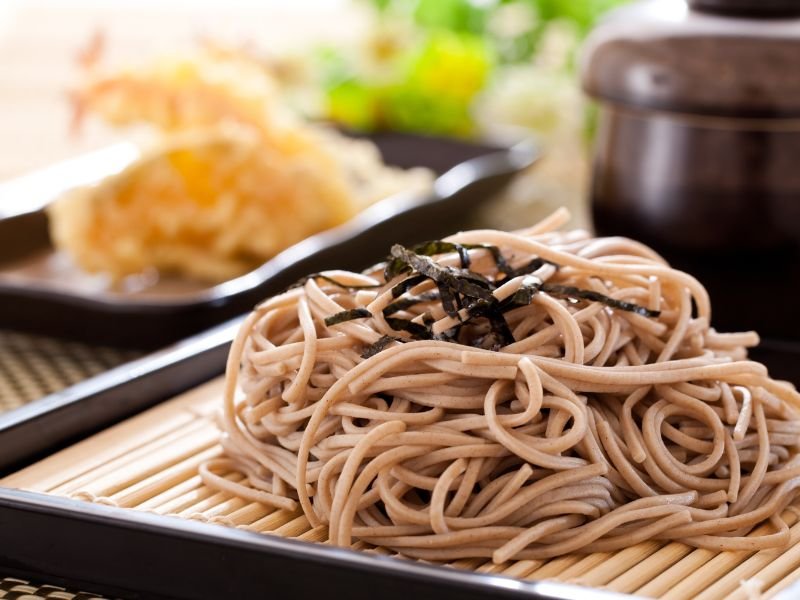
What To Eat and Drink in Tsukuba, Japan
Savor Local Delicacies
Tsukuba’s culinary scene is a delightful fusion of traditional Japanese flavors and regional specialties, reflecting the area’s agricultural abundance and innovative spirit.
Hitachi Aki Soba
Indulge in Hitachi Aki Soba, a premium buckwheat noodle variety native to Ibaraki Prefecture. Known for its rich aroma and firm texture, these noodles are a must-try for soba enthusiasts.
- Authentic Taste: Made from locally grown buckwheat, offering a nutty flavor profile.
- Serving Styles: Enjoy Zaru Soba (cold noodles with dipping sauce) or Kake Soba (hot noodles in broth).
- Cultural Experience: Many soba restaurants in Tsukuba prepare noodles by hand, adhering to traditional methods.
Tip: Visit during the annual Tsukuba Soba Festival in November to sample various soba dishes and witness noodle-making demonstrations.
Tsukuba Umeshu
Quench your thirst with Tsukuba Umeshu, a delightful plum wine crafted from locally harvested ume plums. The drink strikes a balance between sweet and tart, making it a refreshing aperitif or dessert wine.
- Local Breweries: Visit places like Ishii Brewery to sample and purchase umeshu.
- Variety: Try different aging styles, including barrel-aged and vintage selections.
- Souvenir Potential: Bottles of umeshu make excellent gifts for friends and family.
Tip: Pair umeshu with light appetizers like cheese, nuts, or dried fruits to enhance its flavor. Always drink responsibly, especially if you’re driving or cycling afterward.
Fresh Produce
Tsukuba’s fertile lands yield an array of fresh fruits and vegetables, offering farm-to-table dining experiences.
- Seasonal Fruits: Savor strawberries, blueberries, grapes, and pears, often featured in desserts and pastries.
- Vegetable Dishes: Enjoy dishes made with local produce like sweet potatoes, lotus roots, and edamame.
- Farmers’ Markets: Visit markets like Tsukuba Marche to purchase fresh produce and artisanal products directly from farmers.
Tip: Don’t miss out on trying Tsukuba-grown rice, which is known for its quality and taste. Some restaurants offer rice tasting menus to showcase different varieties.
Local Sake and Craft Beer
Complement your meals with beverages that highlight Tsukuba’s brewing craftsmanship.
- Sake: Sample varieties from local breweries like Inaba Shuzo, known for their award-winning sakes.
- Craft Beer: Visit breweries such as Tsukuba Craft Brewery to enjoy unique beers made with local ingredients.
- Tasting Events: Attend sake and beer festivals to explore a wide range of flavors.
Tip: Many breweries offer tours and tastings. Check their schedules and make reservations in advance for a more personalized experience.
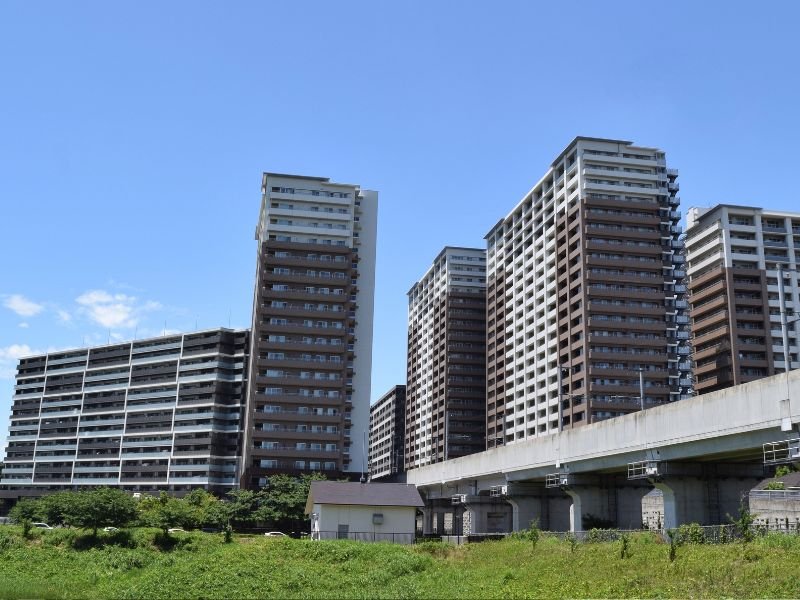
Tours For Visitors To Tsukuba, Japan
Enhance Your Experience with Guided Tours
Joining a tour can enrich your understanding of Tsukuba’s attractions, providing expert insights and convenient access to exclusive areas.
Science and Technology Tours
Dive deep into Tsukuba’s scientific landscape with specialized tours that cater to enthusiasts and professionals alike.
- JAXA Space Center Tour: Explore restricted areas with a guided tour that delves into Japan’s space missions, satellite development, and astronaut training facilities.
- AIST Research Facility Tour: Gain access to cutting-edge laboratories focusing on robotics, energy, and materials science.
- Customized Itineraries: Work with tour operators to tailor visits to specific institutions or research areas of interest.
Tip: Due to security protocols, these tours often require advance booking and may have participant limitations. Ensure you carry valid identification and adhere to any dress codes.
Cultural and Historical Tours
Immerse yourself in Tsukuba’s rich heritage through guided experiences that highlight traditional practices and historical sites.
- Mount Tsukuba Pilgrimage: Join a guided hike that incorporates visits to shrines, temples, and sacred sites, providing historical context and spiritual insights.
- Tea Ceremony Workshops: Participate in an in-depth exploration of the tea ceremony, including its history, etiquette, and philosophical underpinnings.
- Local Festivals: Align your visit with seasonal festivals and join tours that offer insider access to events like the Mount Tsukuba Fire Festival.
Tip: Language barriers can be a challenge. Opt for tours with English-speaking guides or consider hiring a private interpreter for a more comprehensive experience.
Cycling Tours
Experience Tsukuba’s scenic beauty and rural charm on two wheels with guided cycling tours.
- Tsukuba Rinrin Road Tour: Cycle along the former railway line with a guide who can point out historical landmarks and natural highlights.
- Kasumigaura Lake Loop: Enjoy a full-day tour around Lake Kasumigaura, Japan’s second-largest lake, complete with stops at key attractions.
- Countryside Exploration: Visit local farms, sake breweries, and artisan workshops nestled in the countryside.
Tip: Tours often provide bicycles, helmets, and sometimes meals. Confirm what’s included and choose a tour that matches your fitness level.
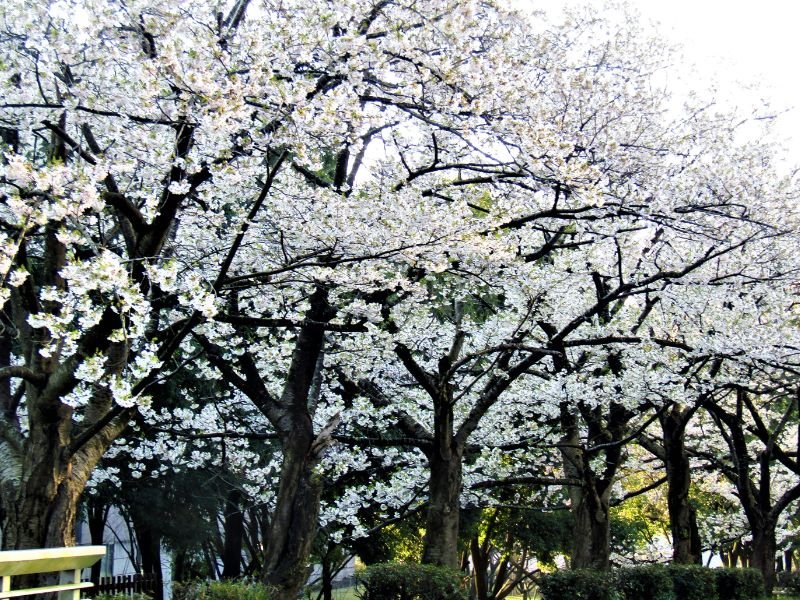
Tsukuba Accommodations Guide: Hotels, Guesthouses, and Hostels
Find Your Perfect Stay
Tsukuba offers a variety of accommodations to suit different preferences, whether you’re seeking luxury, comfort, or budget-friendly options.
Okura Frontier Hotel Tsukuba
Experience luxury and convenience at the Okura Frontier Hotel Tsukuba, located in the heart of the city near Tsukuba Station.
- Amenities: Indoor pool, fitness center, multiple dining options including Japanese, Western, and Chinese restaurants.
- Rooms: Spacious, elegantly furnished rooms equipped with modern facilities like free Wi-Fi, flat-screen TVs, and minibars.
- Business Facilities: Conference rooms and banquet halls suitable for events and meetings.
Tip: Book directly through the hotel’s website or authorized agents to access special packages that may include breakfast or spa services.
Hotel Bestland
A comfortable mid-range hotel offering excellent value, Hotel Bestland is situated near Kenkyu-Gakuen Station, providing easy access to Tsukuba’s attractions.
- Facilities: On-site restaurants serving Italian and Japanese cuisine, spa services including massages and hot stone treatments, and free Wi-Fi throughout the property.
- Rooms: Stylish and modern, with options ranging from single rooms to suites. Some rooms offer panoramic views of the city.
- Accessibility: Close proximity to shopping centers, parks, and public transport.
Tip: The hotel’s breakfast buffet is highly recommended, featuring a variety of dishes made from local ingredients. Consider adding it to your booking for a convenient start to your day.
Tsukuba Sky Hotel
For travelers on a budget, the Tsukuba Sky Hotel offers affordable accommodations without sacrificing comfort.
- Affordable Rates: Ideal for solo travelers, students, or those looking to save on lodging.
- Basic Amenities: Free Wi-Fi, air conditioning, private bathrooms, and a complimentary light breakfast.
- Convenient Location: Situated near the Tsukuba Express line, making it easy to explore the city.
Tip: Rooms may be smaller compared to higher-end hotels, so pack accordingly. Early booking is advised during peak seasons to secure a spot.
Guesthouses and Hostels
For a more communal and culturally immersive experience, consider staying in a guesthouse or hostel.
- Tsukuba Guesthouse Niko Niko: Offers dormitory-style rooms and private rooms with shared facilities. The friendly hosts often organize cultural exchange events.
- Sankyu Guest House: A traditional Japanese house converted into a guesthouse, providing tatami rooms and a cozy atmosphere.
- Community Vibes: These accommodations often have communal kitchens and lounges where you can meet fellow travelers and locals.
Tip: Read reviews to ensure the guesthouse meets your expectations in terms of cleanliness, amenities, and location. Some may have curfews or specific house rules.
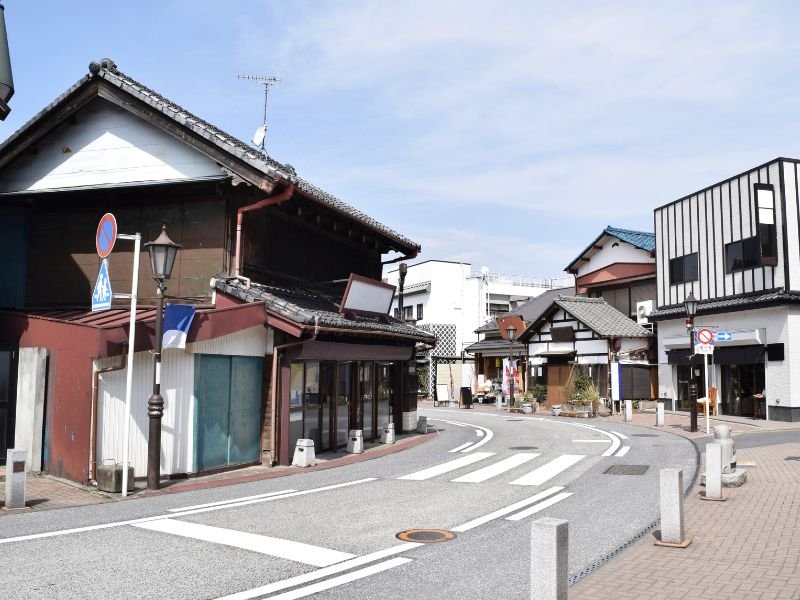
Day Trips From Tsukuba, Japan
Explore Beyond the City
Tsukuba’s strategic location makes it an excellent base for day trips to explore the rich history and natural beauty of the surrounding regions.
Narita City
Before catching your flight or as a standalone excursion, visit Narita City to immerse yourself in traditional Japanese culture.
- Naritasan Shinshoji Temple: Explore this expansive temple complex dating back over 1,000 years, featuring pagodas, gardens, and intricate architecture.
- Omotesando Street: A charming shopping street lined with traditional shops selling souvenirs, local crafts, and street food like eel dishes.
- Narita Airport Shopping Mall: Ideal for last-minute shopping, offering a range of Japanese products and duty-free items.
Tip: Store your luggage at the airport or station lockers to travel light. The Keisei Main Line provides direct access from Tsukuba to Narita.
Ushiku Daibutsu
Marvel at the grandeur of the Ushiku Daibutsu, one of the world’s tallest bronze Buddha statues, standing at 120 meters.
- Observation Deck: Ride the elevator to the statue’s chest level for panoramic views of the surrounding landscape.
- Beautiful Gardens: Stroll through seasonal flower gardens featuring cherry blossoms, nemophila, and cosmos.
- Petting Zoo and Small Animal Park: Ideal for families, offering interactions with rabbits, goats, and other animals.
Tip: Combine your visit with a trip to a nearby winery or sake brewery to make the most of your day. Public transportation options are limited, so consider renting a car or joining a tour.
Mito City and Kairakuen Garden
Travel to Mito City, the capital of Ibaraki Prefecture, to visit Kairakuen Garden, celebrated as one of Japan’s top three gardens.
- Plum Blossom Festival: Visit in late February to March to witness over 3,000 plum trees in bloom during the Mito Plum Blossom Festival.
- Historical Sites: Explore Kodokan, a former samurai school offering insights into Edo-period education.
- Art and Culture: Visit the Art Tower Mito for contemporary art exhibitions and performances.
Tip: The JR Joban Line connects Tsukuba to Mito City. Purchase a Suica or Pasmo card for seamless travel. Check bloom forecasts to time your visit during peak blossom periods.
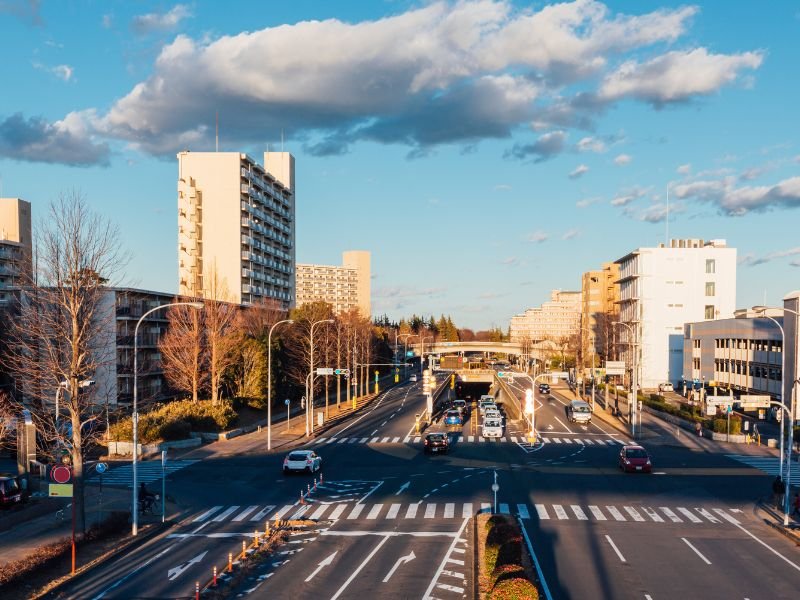
Tsukuba Transportation Guide
Getting Around with Ease
Navigating Tsukuba and its surroundings is straightforward, thanks to efficient transportation options.
Tsukuba Express (TX) Line
The Tsukuba Express is the city’s main rail line, connecting Tsukuba to Tokyo in under an hour.
- Fast Travel: Reach Akihabara Station in Tokyo in approximately 45 minutes.
- Frequent Services: Trains run every 5 to 15 minutes, depending on the time of day.
- Key Stations: Tsukuba, Kenkyu-Gakuen, Banpaku-Kinen-Koen.
Tip: Purchase an IC card like Suica or Pasmo for convenient tap-and-go access to trains and buses. These cards are rechargeable and can be used nationwide.
Buses
An extensive network of buses connects various parts of Tsukuba, including tourist attractions, residential areas, and neighboring cities.
- Local Buses: Operated by companies like Kantetsu Bus, covering routes to Mount Tsukuba, Tsukuba Center, and research institutions.
- Express Buses: Direct services to Tokyo Station, Narita International Airport, and Haneda Airport.
- Fares: Payable by cash or IC card. Some buses offer day passes for unlimited travel within certain zones.
Tip: Bus schedules can vary, especially on weekends and holidays. Check timetables in advance and arrive at the stop a few minutes early.
Rental Cars
For maximum flexibility, especially when visiting rural areas or attractions off the main public transport routes, consider renting a car.
- Rental Agencies: Companies like Toyota Rent a Car, Nissan Rent a Car, and Times Car Rental have offices near Tsukuba Station.
- Driving Tips: Japan drives on the left side. Roads are well-maintained, and signage often includes English translations.
- Parking: Available at most attractions, though fees may apply.
Tip: An International Driving Permit (IDP) is required for foreign visitors to rent and drive a car in Japan. Ensure you obtain one before your trip.
Taxis
Taxis are a convenient option for short distances or when public transport is not available.
- Availability: Easily found at train stations, hotels, and busy areas.
- Fares: Metered, with initial charges and additional fees per kilometer. Late-night rates may apply.
- Ride-Hailing Apps: Services like JapanTaxi and Uber (limited availability) can be used to book rides.
Tip: Carry a card or note with your destination’s address written in Japanese to show the driver, as not all taxi drivers speak English. Tipping is not customary in Japan.
Cycling and Walking
Tsukuba is a pedestrian and cyclist-friendly city, with dedicated lanes and scenic routes.
- Bike Rentals: Available at Tsukuba Station and various locations throughout the city.
- Cycling Paths: Extensive network including the Tsukuba Rinrin Road and paths around parks.
- Walking Trails: Urban areas are well-planned with sidewalks, and attractions are often within walking distance of public transport.
Tip: Always follow traffic rules, wear a helmet when cycling, and park bicycles in designated areas to avoid fines.
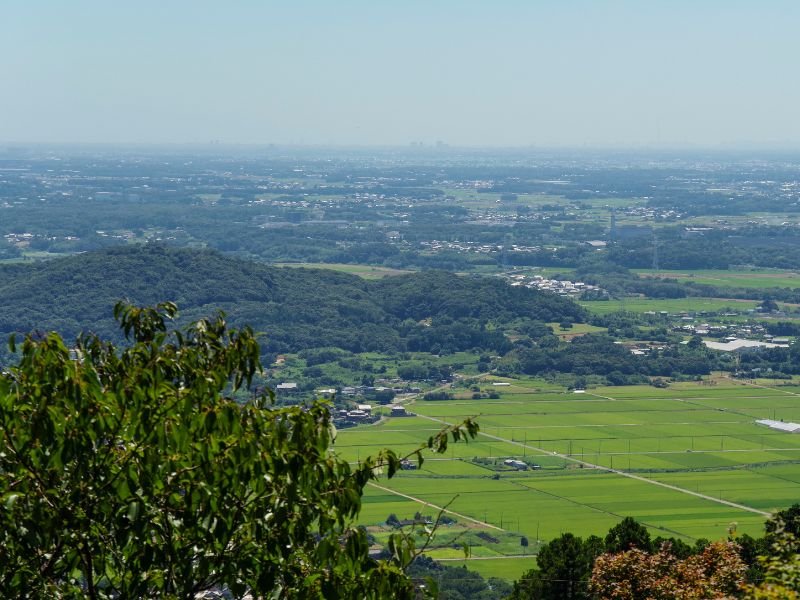
Essential Questions About Visiting Tsukuba, Japan: Practical Answers, Science-City Highlights & Real-World Travel Tips
Is Tsukuba worth visiting if I’m already based in Tokyo?
Absolutely. Tsukuba feels like a different rhythm from Tokyo—more spacious, greener, and quietly ambitious. You get a rare Japan combo: legit science-city attractions, an easy mountain hike, and family-friendly parks without the mega-city chaos.
If you love day trips with a purpose (space, robotics, museums) plus a nature payoff, Tsukuba hits that sweet spot.
How long should I stay in Tsukuba?
It depends. A focused day trip works if your main goals are Mount Tsukuba and one major science stop.
For a more relaxed visit, plan 1–2 nights. That gives you time for a morning hike, JAXA or the Expo Center, a slower food crawl, and a bike ride without feeling like you’re speedrunning the city.
Can I do Tsukuba as a day trip from Tokyo?
Yes. The Tsukuba Express makes this easy—roughly 45 minutes from Akihabara to Tsukuba Station on the fast services.
If you start early, you can hike in the morning, hit a museum or space-themed stop in the afternoon, and still be back in Tokyo for dinner.
What’s the easiest way to get to Tsukuba from Tokyo?
The simplest route is the Tsukuba Express (TX) to Tsukuba Station. It’s clean, fast, and designed for commuters, so it feels very stress-free by Japanese public transport standards.
If you’re carrying bulky luggage, this is still your best bet—then use buses or a short taxi to your hotel.
Where should I base myself in Tsukuba—Tsukuba Station or Kenkyu-Gakuen?
Short version: Tsukuba Station for convenience, Kenkyu-Gakuen for a modern, shopping-forward vibe.
Tsukuba Station puts you closer to transport connections and a broader range of hotels. Kenkyu-Gakuen can feel newer and more residential with big retail options nearby. Either base works well for a first visit.
What’s the best time of year to visit Tsukuba?
Spring and autumn are the easy wins. You’ll get comfortable temperatures for Mount Tsukuba and beautiful seasonal color in parks and gardens.
Winter can be crisp but photogenic, while summer is hot and humid—still doable, but you’ll want earlier starts and more indoor science stops to balance the heat.
How hard is the Mount Tsukuba hike?
Not really—at least compared to bigger Japanese peaks. Mount Tsukuba is accessible, well-marked, and friendly to moderately active travelers.
You can choose easier or tougher routes, and the cable car/ropeway options make this a “pick your effort level” mountain. That’s why it’s great for mixed groups where not everyone wants a full grind to the top.
Is the cable car or ropeway worth it?
Yes. If your time is limited, taking one ride up and hiking down is a nice compromise.
You still get the views and the shrine atmosphere without the full leg-burn. I also like this option if you’re traveling with kids or anyone who wants the summit experience without a long climb.
Do I need to book anything for the JAXA Tsukuba Space Center?
It depends. The Space Dome-style exhibit areas are often easy to visit, but tours and special programs can have limited slots.
If you specifically want guided content (especially in English), check schedules ahead and plan your timing around what’s actually running the day you’re there.
Is the Tsukuba Expo Center good for adults, or mostly for kids?
Absolutely good for adults. The interactive science vibe is playful, but the themes—space, energy, robotics—are genuinely interesting.
The planetarium is a highlight if you enjoy immersive shows. Even if you’re not a hardcore science nerd, it’s a fun, low-effort way to break up a more outdoor-heavy itinerary.
What’s the best “quiet half-day” activity in Tsukuba?
The botanical garden and calm city parks are perfect for this. When you want a slower pace, Tsukuba does “low-key and pleasant” really well.
I’d pair a garden visit with a relaxed lunch, then a short stroll or café stop. It’s a great counterbalance to a more intense hike day.
What local food should I prioritize besides the obvious?
Yes. Hitachi Aki Soba is the headline, but don’t stop there.
Look for seasonal Ibaraki produce, local sweet potatoes, and smaller neighborhood eateries around the station areas. If you’re into regional drinks, Tsukuba umeshu and local breweries can add a nice “science city meets countryside” flavor to your meal plan.
Is Tsukuba a good destination for cycling?
Absolutely. This is one of Tsukuba’s most underrated strengths.
You’ve got the Rinrin Road network and access to longer scenic routes tied to Lake Kasumigaura. Even casual cyclists can enjoy shorter segments without committing to an all-day endurance mission.
Is Tsukuba family-friendly?
Yes. Between parks, open spaces, Wanwan Land, and museums with interactive exhibits, Tsukuba is surprisingly easy with kids.
The city layout also feels less hectic than Tokyo, which can really lower the stress level for families. It’s one of those places where you can actually breathe while sightseeing.
Do I need a car in Tsukuba?
Not really. For the city core and main attractions, public transport and taxis are enough.
That said, a car becomes useful if you’re planning multiple countryside stops, fruit farms, or a full-on Lake Kasumigaura day. If your trip is short and you don’t want the hassle, skipping the car is totally realistic.
What are the best day trips from Tsukuba?
Tsuchiura for lake views and seasonal events, Mito for gardens and history, Ushiku Daibutsu for a big, memorable landmark, and Narita for temple culture (especially if it lines up with your flight logistics).
If your timing matches a major festival or fireworks event nearby, that can be a standout “unexpected highlight” that makes your Tsukuba base feel extra smart.
Tsukuba Travel Guide: Final Thoughts
From exploring cutting-edge research facilities to hiking the scenic trails of Mount Tsukuba, there’s an abundance of things to do in Tsukuba that cater to diverse interests.
Key Takeaways:
- Diverse Attractions: Tsukuba offers a unique mix of science, nature, and culture, ensuring a well-rounded travel experience.
- Culinary Delights: Don’t miss local specialties like Hitachi Aki Soba and Tsukuba Umeshu to truly savor the region’s flavors.
- Accessibility: With efficient transportation options like the Tsukuba Express and extensive bus networks, getting around is convenient and straightforward.
Tip: Engage with locals whenever possible. They often provide the best recommendations for hidden gems and authentic experiences, enriching your travel journey.
So you can now set your sights on Tsukuba, Japan. Whether you’re gazing at the stars in a state-of-the-art planetarium or enjoying a tranquil moment in a traditional tea house, Tsukuba invites you to create distinct memories.
